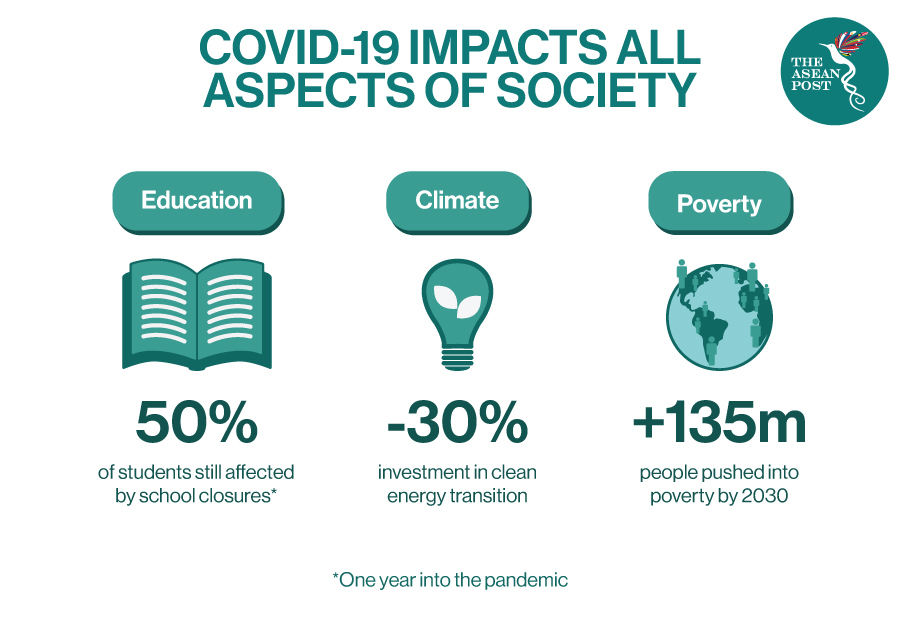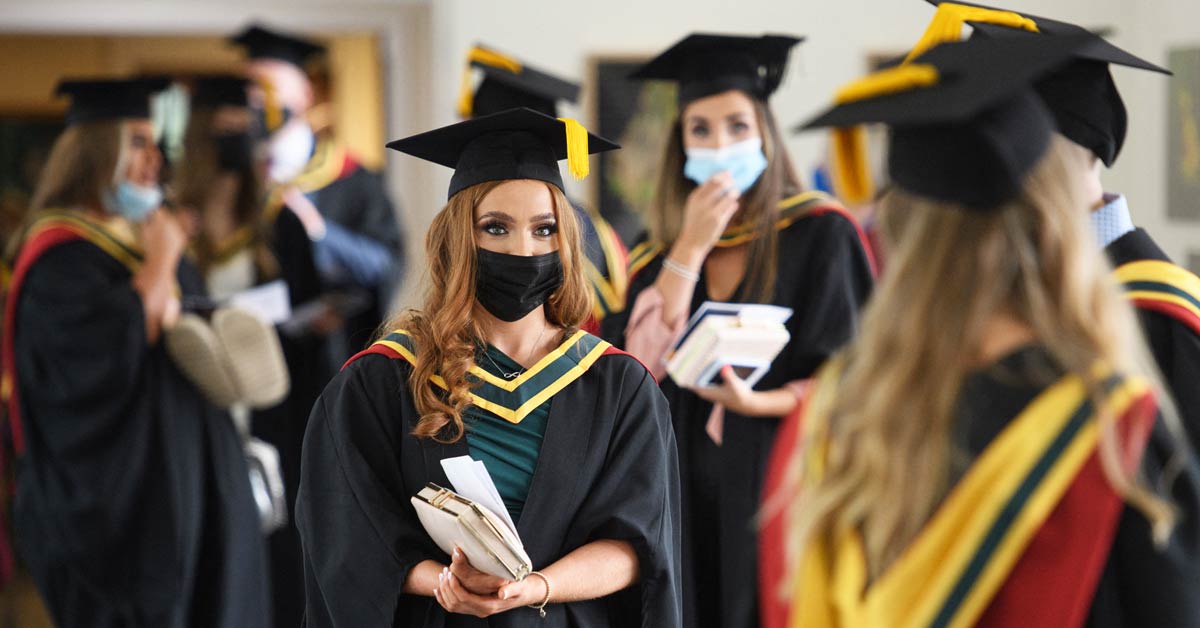The pandemic’s next effect might be a wave of political conflict.
A rising tide of anger among young people at what they have willingly sacrificed for older people emerges in a major survey across 12 European countries. It has split the continent along old fault lines - rich versus poor zones, north and west versus south and east - dividing people between those strongly affected and those barely touched.
But most starkly the rift falls between generations: two-thirds of over-60s have done relatively well, while two-thirds of under-30s feel their opportunities have been cruelly truncated. Their trust in governments has fallen perilously.
One “warning” is a repeat of the 1968 youthquake: some of us who were there might think that’s long overdue. Mark Leonard, director of the European Council on Foreign Relations, which produced the survey, says young people “feel like those who fought in wars. They complied, they obeyed to save parents and grandparents, yet they are the long-term victims.” Damage to their jobs, education and life chances will possibly scar that generation permanently.
He is pessimistic that politicians will respond by pivoting their attention from old voters towards younger ones: in Britain, he points to the brutal end to furloughing next month, where young hospitality workers will be hardest hit. He points to the government’s refusal to finance the education catch-up recommended by its own adviser, Kevan Collins, causing his resignation. Leonard notes “a perennial lack of respect and attention paid to the young”.
Wherever you look, it’s young people paying the heaviest penalty, in cuts to school funding, cuts to FE (further education) colleges, lengthy waiting times for mental health treatment, and the underfunding and closure of Sure Start centres and nurseries that cause harm that lasts a lifetime.

‘Generations: Does When You’re Born Shape Who You Are?’
Generation COVID should be rebellious. For the first time they expect to do less well than their parents - they are already doing less well than their parents were at their age. That’s a new phenomenon. Until the mid-2000s everyone expected progress. It was they who were hit hardest by the 2008 crash, as epic events make their deepest marks on those coming of age. So finds Prof Bobby Duffy. His book - Generations: Does When You’re Born Shape Who You Are? - is published today, packed with statistics that show these effects, and how the lifecycle changes you as you age. For example, Thatcher’s children coming of age in the 1980s kept that individualistic outlook of the time. Duffy fears the harm done to the COVID generation risks being even worse than that done by the crash.
The generations are pulling apart physically, he finds. In the past 20 years, there has been a dramatic shift of young people into cities, with older people retreating to shires and the coast. “We are not around each other as we were,” he says, regarding that as a danger and a loss to all.
In wealth, older people are separating from younger people, as property inflation races ahead and homeowners benefit. Since the crash, two-thirds of all extra wealth created in Britain has gone to the over-65s. Over-50s do almost half the consumer spending, though they’re only a third of the population.
If anyone out there is preparing to ignite a youth rebellion, this book has the facts to set it on fire.
And yet it tells another story too: kindly and forgiving young people are not resentful of older people, with no impulse “to mug grandma”, says Duffy. “They know they’ll be old some day, they love their families and don’t blame them.” But they are right to blame governments for precarious jobs, stagnated wages and the lack of affordable housing.
As for the culture wars stirred by this government and its media supporters, Duffy says they create “an artificial divide”, deliberately polarising generations with their poison attacks on young people as “woke” and “snowflakes”, excoriating them for Black Lives Matter and Extinction Rebellion activism.
Dislike of young people is perennial: waves of moral panic about a decadent next generation are age-old. Socrates decried their “luxury, bad manners, contempt for authority, disrespect for elders and a love of chatter”. But as old people get boxed into hostile stereotypes too, the physical separation of the generations can only worsen bad perceptions both ways.
The real crisis, Duffy lays out, is inequality within generations, not between them. Wealth is solidifying into castes that will last into perpetuity as families pass down not just inheritances and deposits for homes, but their education. The COVID crisis has highlighted how private tutoring is widening social gaps between children.
The question is how you persuade older people to vote for the welfare of young people, as the lifecycle drives people rightwards.
The pandemic could have been designed to cause intergenerational war and yet, so far, young people have been remarkably generous in protecting older people. But now this “generational event” requires all voters to return that generosity and focus everything on young people’s future. – The Guardian
